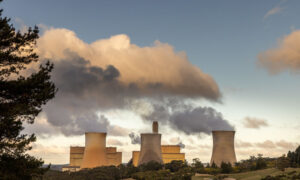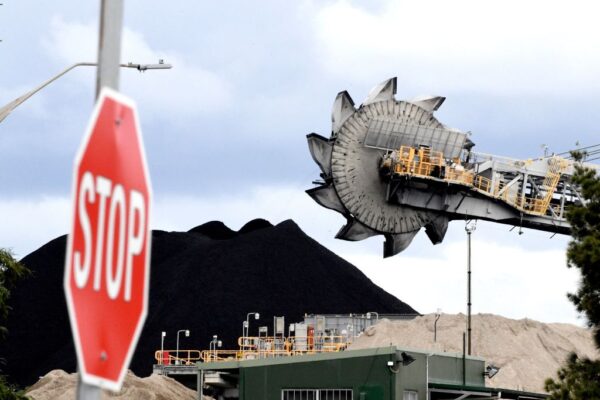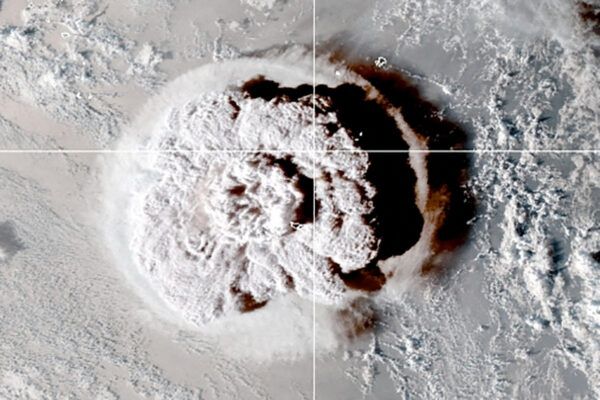The War on Coal
CommentaryOn Nov. 25, the Land Court of Queensland rendered judgement in Waratah Coal Pty Ltd v Youth Verdict Ltd and blocked Waratah Coal’s thermal coal project on the grounds of climate change and human rights concerns. This 372-page judgement is important because it considers the alleged effects of the exportation of coal on climate change in the importing countries. The Court acknowledged that “Climate change was a key issue.” It also noted confidently that “Human-induced climate change is caused by greenhouse gas (GHG) emissions, most importantly carbon dioxide (CO2), which is emitted when thermal coal is combusted.” The judgement also referred to the Paris Agreement, which “sets a long-term global temperature goal of well below 2 degrees Celsius (3.6 degrees Fahrenheit) above the pre-industrial level at 2100, with the ambition of keeping that temperature to 1.5 degrees Celsius above that level.” The Court said that, in its view, there is “a near-linear correlation between the cumulative emissions of CO2 and the rise in global average surface temperature.” By 2020, the global average surface temperature had apparently increased by 1.2 degrees Celsius and “the combustion of coal accounts for about 30 percent of the rise in both temperature and atmospheric CO2 concentration.” However, rigorous scientific analysis will bring under question what the so-called “average” temperature of the globe was in pre-industrial times, as well as the human contribution to the rise in both temperature and atmospheric CO2 concentration. No Consideration to Natural Events Following the release of the judgement, The Weekend Australian informed its readers that the Court’s ruling was the first time the court rejected a mining project based on climate impacts of coal burnt overseas, “a precedent conservationists say will make it ‘almost impossible’ for any new thermal coal mines to be built in the state.” It was also the first time the state’s human rights act was used to reject a mine on climate change and Indigenous cultural rights grounds. Modelling that claims to be able to control average global temperatures to within 1.5 degrees by limiting human recycling of a trace, life-essential gas should be subjected to rigorous scientific analysis, and simple reductio ad absurdum common sense. A bucket-wheel dumping soil and sand removed from another area of a Newcastle mine, the world’s largest coal exporting port, in Australia on Nov. 5, 2021. (Saeed Khan/AFP via Getty Images) For example, the recently issued State of the Climate 2022 Report by the Australian Bureau of Meteorology and CSIRO does not stack up with the facts in areas that can be readily checked, such as rising sea levels (pdf). No account was taken in their models of the underlying cause of weather-controlling ocean current events. El Niño and La Niña are manifestations of heat plumes (blobs) derived from the hot interior of the Earth via myriads of largely uncharted sub-sea vents. A recent study on this phenomenon by Prof. Wyss Yim concludes that: “Volcanic eruptions are underestimated as a natural cause of climate change in contrast to the exaggerated but minimal impact of anthropogenic carbon dioxide emissions … Climate change is unfortunately politicized by the United Nations and numerous governments and there is no longer any debate based on scientific truth.” The proposed Waratah mine is one of many in the Galilee Basin that could supply world demand for the cheap, reliable energy source on which Western civilisation was built. So-called “fossil” fuels are just part of the vast hydrocarbon resources available for the service of mankind, and recent studies increasingly support the argument that oil and gas are not fossil-based but are abiotic in origin and are, in fact, “renewable” because they are constantly emerging from the interior of our planet. Even doubling the amount of a trace gas in the atmosphere, carbon dioxide, could only help green the planet and would do nothing to change the weather patterns that govern our lives. Yim identified the Hunga Ha’apai Tonga eruption in January as the main contributor to the 2022 South Pacific Blob that resulted in severe flooding and record rainfall in eastern Australia and New Zealand. Closing our essential coal industry cannot change such events but will destroy our ability to cope with them. The eruption of an underwater volcano off Tonga, which triggered a tsunami warning for several South Pacific island nations, in an image from the NOAA GOES-West satellite taken at 1:00 a.m. ET on Jan. 15, 2022. (CIRA/NOAA/Handout via Reuters) Profit Scheme Climate change is an issue as old as the Chicken Little, Henny Penny fable, but it has evolved into a money-making bonanza for the controllers of a gravy train that leads to impoverishment for those most in need of cheap, reliable energy to survive. COP27 attracted 45,000 delegates for their 27th year of deliberating and closed with a commitment of $

Commentary
On Nov. 25, the Land Court of Queensland rendered judgement in Waratah Coal Pty Ltd v Youth Verdict Ltd and blocked Waratah Coal’s thermal coal project on the grounds of climate change and human rights concerns. This 372-page judgement is important because it considers the alleged effects of the exportation of coal on climate change in the importing countries.
The Court acknowledged that “Climate change was a key issue.” It also noted confidently that “Human-induced climate change is caused by greenhouse gas (GHG) emissions, most importantly carbon dioxide (CO2), which is emitted when thermal coal is combusted.”
The judgement also referred to the Paris Agreement, which “sets a long-term global temperature goal of well below 2 degrees Celsius (3.6 degrees Fahrenheit) above the pre-industrial level at 2100, with the ambition of keeping that temperature to 1.5 degrees Celsius above that level.”
The Court said that, in its view, there is “a near-linear correlation between the cumulative emissions of CO2 and the rise in global average surface temperature.” By 2020, the global average surface temperature had apparently increased by 1.2 degrees Celsius and “the combustion of coal accounts for about 30 percent of the rise in both temperature and atmospheric CO2 concentration.”
However, rigorous scientific analysis will bring under question what the so-called “average” temperature of the globe was in pre-industrial times, as well as the human contribution to the rise in both temperature and atmospheric CO2 concentration.
No Consideration to Natural Events
Following the release of the judgement, The Weekend Australian informed its readers that the Court’s ruling was the first time the court rejected a mining project based on climate impacts of coal burnt overseas, “a precedent conservationists say will make it ‘almost impossible’ for any new thermal coal mines to be built in the state.” It was also the first time the state’s human rights act was used to reject a mine on climate change and Indigenous cultural rights grounds.
Modelling that claims to be able to control average global temperatures to within 1.5 degrees by limiting human recycling of a trace, life-essential gas should be subjected to rigorous scientific analysis, and simple reductio ad absurdum common sense.

For example, the recently issued State of the Climate 2022 Report by the Australian Bureau of Meteorology and CSIRO does not stack up with the facts in areas that can be readily checked, such as rising sea levels (pdf).
No account was taken in their models of the underlying cause of weather-controlling ocean current events. El Niño and La Niña are manifestations of heat plumes (blobs) derived from the hot interior of the Earth via myriads of largely uncharted sub-sea vents.
A recent study on this phenomenon by Prof. Wyss Yim concludes that: “Volcanic eruptions are underestimated as a natural cause of climate change in contrast to the exaggerated but minimal impact of anthropogenic carbon dioxide emissions … Climate change is unfortunately politicized by the United Nations and numerous governments and there is no longer any debate based on scientific truth.”
The proposed Waratah mine is one of many in the Galilee Basin that could supply world demand for the cheap, reliable energy source on which Western civilisation was built.
So-called “fossil” fuels are just part of the vast hydrocarbon resources available for the service of mankind, and recent studies increasingly support the argument that oil and gas are not fossil-based but are abiotic in origin and are, in fact, “renewable” because they are constantly emerging from the interior of our planet.
Even doubling the amount of a trace gas in the atmosphere, carbon dioxide, could only help green the planet and would do nothing to change the weather patterns that govern our lives.
Yim identified the Hunga Ha’apai Tonga eruption in January as the main contributor to the 2022 South Pacific Blob that resulted in severe flooding and record rainfall in eastern Australia and New Zealand.
Closing our essential coal industry cannot change such events but will destroy our ability to cope with them.

Profit Scheme
Climate change is an issue as old as the Chicken Little, Henny Penny fable, but it has evolved into a money-making bonanza for the controllers of a gravy train that leads to impoverishment for those most in need of cheap, reliable energy to survive.
COP27 attracted 45,000 delegates for their 27th year of deliberating and closed with a commitment of $2 trillion to be paid by developed countries to developing nations (China is designated as a developing nation) as token reparations for causing climate change—a charge that needs to be refuted strongly. A quote attributed to Abraham Lincoln comes to mind: “You cannot strengthen the weak by weakening the strong.”
Australia, already heavily in debt, has agreed to pay for front-row seats in a tragedy of errors. Australia is usually the first country to help Pacific nations when cyclones, volcanoes, tsunamis, and earthquakes inevitably cause devastation.
But who will help an impoverished Australia, sitting on immense energy sources sterilised by judicial overreach, when a natural disaster hits?
The Court’s view that the human rights issue “weighs more heavily in the balance than the economic benefits of the mine and the benefit of contributing to energy security for Southeast Asia” does not provide an answer to this question.
While the Land Court’s judgement is allegedly based on sound legal analysis, it nevertheless resolutely embraces the climate change mantra.
This is redolent of a speech once given in the 1990s by the late The Hon. Peter Connolly QC, commenting on the Mabo decision, which recognised the existence of native title in Australia.
In a speech to the Council for the National Interest in Brisbane, he concluded unambiguously: “It is difficult to resist the conclusion that the ‘native title’ invented by a majority of the Court is bogus. It may indeed give a warm inner glow to the inventors, but no lasting good can arise from a spurious foundation.”
His point is equally appropriate to describe the judgement of the Land Court of Queensland.
Views expressed in this article are the opinions of the author and do not necessarily reflect the views of The Epoch Times.












